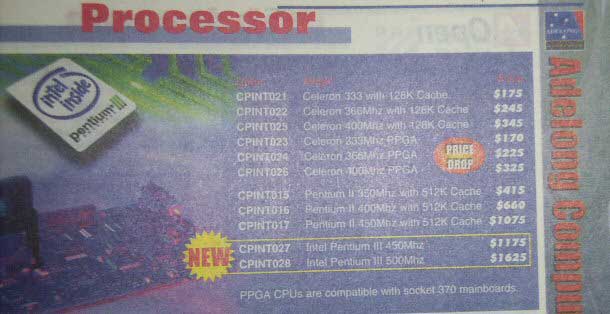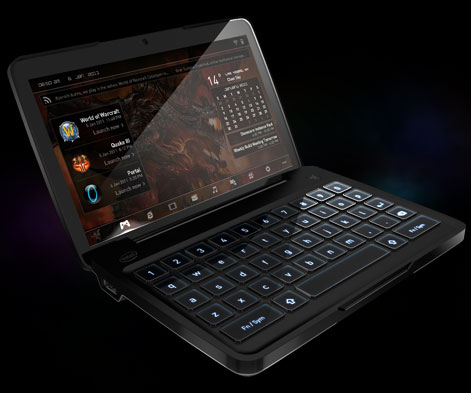|
|
Advertisement:
|
|
OCAU Blog: Change and why it's (obviously) a good thing. |
|
Join the community - in the OCAU Forums!
|
On the night of the 31st of December, 1999, I was standing with a group of friends and coworkers in the front yard of my supervisor’s house. We’d all had a few drinks, but we were mostly hanging around to run inside at midnight and see if all the computers at our workplace suddenly went *pop*, thanks to the Y2K bug. We had connected to the work network via a 56k modem attached to his “grunty” Pentium 3 computer and we were just waiting for the clock to tick over.
In the end, everything was fine. Planes weren’t falling from the sky, Wall Street hadn’t crashed, and no one had died from the potential threat of the dreaded Y2K bug. We all breathed a sigh of relief, put a fresh CD in the stereo and determinedly got drunk as my Nokia 3210 began to flash messages across its monochrome 84 x 48 screen from distant celebrating friends.
11 years has flown by since then and as with everything else in life, things change. I have less hair on my head and more hair in other places I rather there wasn’t. Restaurants throughout Australia no longer serve mayonnaise with their dishes; aioli is the key condiment to spread on your fish now. Justin Beiber exists and is annoying everyone. The world we live in is nearly unrecognizable compared to the late 1990s, both in political landscape and in the way we live our lives.
Technologically speaking, we’ve come a long way in a relatively short amount of time. 2000 was the year that Intel released the Pentium 4 processor, debuting with the staggering speed of 1.4Ghz. AMD released the Athlon “Thunderbird” in 2000 as well, ranging from 600mhz to 1.4Ghz. Currently, I have an Athlon II X4 635 CPU with 4 cores running at 2.9GHz that cost me roughly $70 about 4 months ago. I bought another 1 TB hard drive last week for $50. I can’t even begin to imagine what a terabyte of drive space in 2000 would have cost, but I suspect the purchase process would have started with, “Does Sir have collateral…?”

The prices just hurt for what they are... but they were cutting edge.
Of course, if you wanted to purchase a terabyte of drive space back then, you’d have to make some calls to get the ball rolling. 11 years ago, my Nokia 3310 could make calls, send and receive SMS texts and allow me to play ‘Snake’ when I was sitting on the toilet and forgot a magazine. Today, I have a two year old iPhone 3G which I curse on a regular basis as it gets slower and slower. Even if it is running at the same speed as paint drying, I can flip through photos I took with its camera, keep in near-realtime contact with friends via Facebook and Twitter, watch movies, listen to radio stations in other countries, send email, browse the web, play complex 3D games, find what movies are showing at cinemas that the phone locates nearby and of course, translate printed text. The ironic thing is that a lot of us take smartphones like Apple’s products for granted… but the first iPhone was released only 4 years ago.
These days I don’t even *have* to make a phone call to purchase… well.. almost anything. Even groceries are available for order via a webpage. If you have a credit card you don’t even have to have human interaction for the entire purchase, and to put money onto your credit card so you don’t incur fees, you simply jump onto the internet banking site for your financial institution and electronically transfer the funds across. None of this ‘walking into a bank’ like an animal for us.
But in 2000, there was very little in the way of internet banking – or internet, come to think of it. Facebook, YouTube, Wikipedia and Twitter didn’t exist. Google existed, but had only been around for two years. Interestingly though, Amazon.com has been running since 1995.
Regardless, in 2000, if you wanted that terabyte of storage, you’d probably have to walk into a shop and to do that required driving, and if you lived in a big city, that required a few minutes of flipping through a map book. Now, it seems that everyone has a sat-nav device suctioned onto the inside of their windscreen, taking their attention away from the road and keeping it glued to a 4” screen. At least their eyes are focused closer to what’s in front of them, rather than on the book in their lap.
When you finally got your pile of expensive hard drives home and plugged in, you’d probably watch TV as you waited for them to format. When I was a kid, my home town had two channels – WIN and ABC. Eventually we got Seven and TEN as well and then SBS. Now, the entire world has a million high definition channels repeating the same content endlessly, which can now be recorded automatically by devices with internal hard drives that can automagically download a copy of the show schedules for all channels and let a user pick and choose what they want to record, and then walk away. VCR’s were so much more problematic that they’re now a common pop-culture joke. “Haha, he can’t program a VCR, it’s always blinking 12:00!”
So 11 years ago, our phones were primitive, our internet access like a dripping tap, computer storage was tiny, we couldn’t record anything off TV without an engineering degree and driving somewhere new meant flipping through a whole bunch of colourful pages, risking debilitating paper cuts.
Well, was it better back then?
In a word, no.
Look at what we have now – yes, the world has gone into the crapper with multiple wars, oil spills, racial tension and no one’s really sure who’s side someone else is on, but on the technology front, things are better than ever. Look at the new Razer Switchblade: Mobile gaming with a visually adaptive keyboard on something the thickness of two slices of bread? Yes please. Or all the new phones and tablet computers that are being announced with the same processing power - and more memory – than the latest full-size and astoundingly expensive computers we were drooling over in 2000.

The Razer Switchblade Concept.
The cycle of progress will always lead us to these points where we look back and go “wow… we sure got excited over some junk” and I’m sure in another ten years time I’ll be writing something very similar to this one… but for now, I’m going to go read some more articles about CES 2011 and marvel at what fantastic technology we'll be able to buy very soon.
Feel free to comment on this article in this thread.
|
|
Advertisement:
All original content copyright James Rolfe.
All rights reserved. No reproduction allowed without written permission.
Interested in advertising on OCAU? Contact us for info.
|

|


